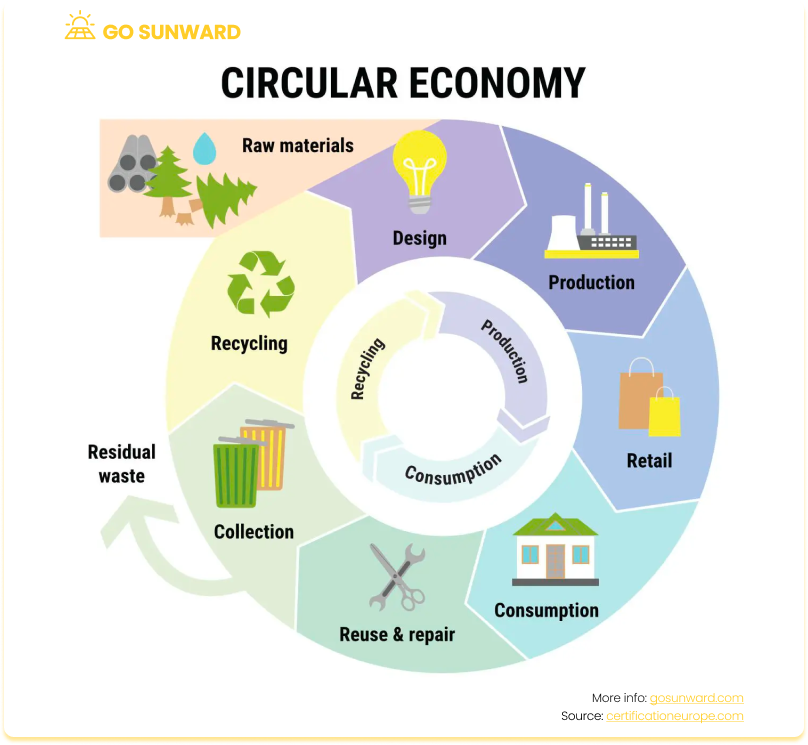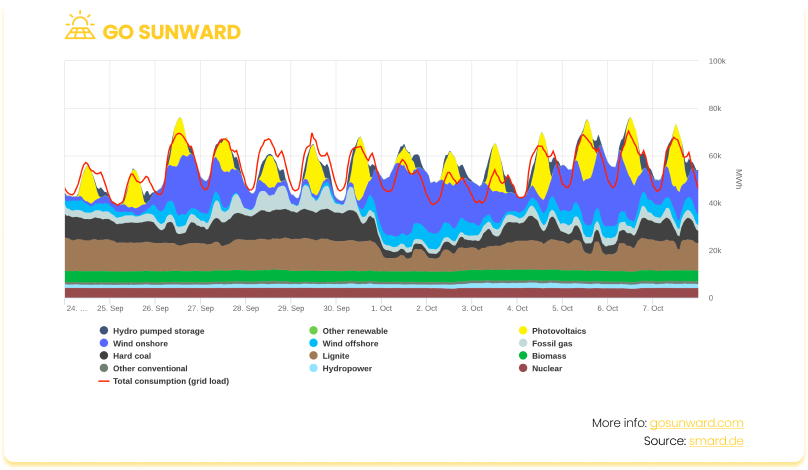ESG And Solar: How To Support Your ESG Goals With Solar
Environmental, Social, and Governance (ESG) criteria have become increasingly important for investors and businesses as they seek to align their operations with sustainability goals, address social and environmental challenges, and maintain long-term shareholder value. By considering ESG factors, companies can demonstrate their commitment to responsible business practices and build trust with stakeholders. At the same time, investors can make informed decisions that align with their values and financial objectives. Solar power can play a central role in advancing ESG goals for businesses, governments and consumers seeking to enhance their sustainability practices.
This article will provide an analysis of the ways solar can be used to boost ESG performance and highlight the benefits of using the technology. While there are several challenges to adopting solar energy into ESG goals, proactive planning and strategic approaches can help companies overcome these obstacles.
Defining ESG
In recent years, ESG considerations and performance have gained significant prominence in boardrooms and government policies. However, the definition of ESG can often be ambiguous. Broadly, the principle of ESG encompasses three crucial factors (Environmental, Social, and Governance) that significantly impact sustainability and ethical practices.
At its core, ESG revolves around three major stakeholders: governments, businesses, and society. These stakeholders are interconnected, and each plays a pivotal role in propelling the transition towards global sustainability.
The strong connection between ESG and the concept of ‘sustainability’ is evident through the UN Sustainable Development Goals (SDGs). These 17 goals were established as part of the 2030 Agenda for Sustainable Development, embraced by all UN Member States in 2015, and they serve as a tangible and holistic framework for fostering peace and prosperity for both humanity and the planet. The majority of these goals can be classified into the pillars of environmental, social, and governance, as highlighted by the graphic below:

Deep Dive Into The Three Factors Of ESG
- Environmental (E): This aspect focuses on a stakeholder’s environmental impact, including its efforts to reduce carbon emissions, consume resources responsibly, adopt sustainable practices, and minimize its ecological footprint. Evaluating environmental performance involves assessing initiatives related to climate change, energy efficiency, waste management, water consumption, and environmental compliance.
- Social (S): The social dimension of ESG involves analyzing a stakeholder’s (typically a corporate stakeholder) relationships with its employees, customers, suppliers, and local communities. This includes factors such as labor practices, employee well-being, diversity and inclusion, community engagement, and contributions to social development and welfare. Companies are evaluated on how they act on social issues, promote human rights, and foster a positive impact on the communities they operate in.
- Governance (G): Governance refers to the structure and practices of a company’s or country’s leadership, management, and oversight. It involves evaluating the board composition, executive compensation, shareholder rights, transparency in financial reporting, and adherence to ethical standards and legal regulations. In the case of governments, it focuses on areas like corruption, transparency, and freedom of population.
The Role Of Solar Energy in ESG Goals
Solar energy is pivotal in advancing Environmental, Social, and Governance (ESG) goals for businesses, governments and consumers seeking to enhance their sustainability practices. As a renewable energy source, solar power, like wind energy, significantly contributes to reducing greenhouse gas emissions and results in a lesser impact on climate change, which is a critical aspect of the environmental pillar of ESG. By transitioning to solar energy, stakeholders can decrease their carbon footprint and demonstrate their commitment to combatting climate change, aligning with global efforts to mitigate its adverse effects.
Moreover, the social dimension of ESG is positively impacted by solar energy adoption. Integrating solar power projects often engages local communities, helps create jobs, and supports economic development. These initiatives contribute to the well-being of communities and foster inclusivity, promoting the social welfare aspect of ESG. Additionally, solar energy projects can bring electricity to remote and underserved areas, empowering people with access to clean energy, education, and better livelihoods, further strengthening the social impact of ESG strategies.
From a governance perspective, incorporating solar energy into an organization’s operations showcases responsible decision-making and commitment to sustainable practices. Embracing solar power can improve transparency in energy consumption and efficiency, enhancing governance and stakeholder accountability. Furthermore, aligning with solar energy initiatives demonstrates prudent risk screening and forward-thinking leadership, which are vital attributes for sound governance aligned with ESG objectives.
The Rise Of Solar ESG: Numerous Benefits To Capitalise On
Investing in solar power offers not only environmental and social benefits but also substantial financial advantages. As consumers and investors prioritize sustainability, companies with a strong commitment to renewable energy and ESG goals are viewed favorably, attracting more stakeholders and enhancing their market position.
Solar energy offers substantial cost savings over time. While the initial installation cost may be significant, solar systems have low operational and maintenance expenses. As companies generate their own clean energy, they can reduce or eliminate electricity bills, enhancing long-term financial planning and predictability.
Furthermore, solar investments yield attractive returns on investment (ROI) over their operational lifetime. As solar technology improves and costs decrease, the payback period for solar installations has shortened, enabling companies to recoup their initial investment and generate positive returns relatively quickly. For example, according to the International Renewable Energy Agency (IRENA), solar PV has seen the steepest cost decline of any electricity source over the last decade, resulting in a huge global solar boom.
Moreover, embracing solar power hedges companies against energy price volatility, insulating them from fluctuating energy costs. By generating their own electricity on-site, businesses gain stability and cost predictability, promoting sound financial management.
How Can Companies Adopt Solar Into Their ESG Goals
Now that we’ve discussed the importance of solar in the ESG space and its benefits, let’s look specifically at how companies can integrate solar into their ESG goals. Our research shows five major themes:
ESG Solar #1 – Carbon Footprint Reduction: Companies committed to lowering their carbon emissions have implemented solar power to transition away from fossil fuel-based electricity generation. By generating clean energy on-site through solar panels, companies can significantly reduce their carbon footprint and demonstrate their commitment to environmental sustainability.
ESG Solar #2 – Renewable Energy Procurement: Some companies have adopted a power purchase agreement (PPA) with solar energy providers. By procuring renewable energy from solar projects, they support the growth of solar investments and demonstrate their commitment to sustainable energy sourcing, contributing to achieving their renewable energy targets.
ESG Solar #3 – Sustainable Operations: Integrating solar energy into their operations allows companies to demonstrate responsible and sustainable practices. For instance, using solar power for lighting, heating, and cooling systems in their facilities helps reduce reliance on non-renewable energy sources, aligning with their ESG objectives.
ESG Solar #4 – Sustainable Supply Chain: Companies committed to sustainable supply chain practices may require their suppliers to use renewable energy. This demand for sustainability can extend to solar energy use, promoting clean energy adoption across the supply chain and reinforcing ESG commitments.
ESG Solar #5 – Circular Economy Initiatives: Solar panel recycling and responsible end-of-life management are essential components of the circular economy. Companies implementing solar energy solutions may also invest in recycling programs, demonstrating their commitment to responsible product lifecycle management and waste reduction.

Overcoming Challenges in Adopting Solar Into ESG Goals
While the benefits of adopting solar are clear, integrating the technology into ESG goals can present several challenges for companies.
One of the primary challenges is the upfront cost of installing solar panels and related infrastructure. The initial investment can be significant for many companies, especially for smaller businesses with limited financial resources. However, financial incentives such as tax credits, rebates, and grants are often available from governments and local authorities to support the adoption of solar energy. Another challenge is the intermittent nature of solar energy. As solar power generation depends on weather conditions and daylight hours, companies must address energy storage solutions to ensure a stable and reliable power supply. Battery storage technologies are rapidly advancing and offer a practical solution to store excess energy during sunny periods and release it when solar output decreases. Combining solar installations with effective energy storage systems enhances grid stability and reduces the dependence on fossil fuel-based backup power.

Technical expertise and maintenance can also pose challenges. Adopting solar energy requires specialized knowledge for system design, installation, and ongoing maintenance. Companies may choose to partner with experienced solar companies to ensure proper installation and performance or invest in training employees to handle maintenance tasks effectively.
Effective communication and reporting are also essential in demonstrating a company’s commitment to solar energy adoption and its alignment with ESG goals. Transparent reporting on the impact of solar integration, such as carbon emissions and energy savings reductions, helps stakeholders understand the company’s sustainability efforts and progress.
Conclusion
In conclusion, integrating solar energy into Environmental, Social, and Governance (ESG) goals presents a compelling and effective strategy for companies seeking to align their business practices with sustainability and responsible corporate citizenship. Solar power offers a multitude of benefits that go beyond reducing carbon emissions and mitigating environmental impact.
Through proactive planning, strategic investment, and responsible supply chain management, companies can seamlessly integrate solar energy into their ESG initiatives, achieving sustainable growth while positively impacting the environment and society.




